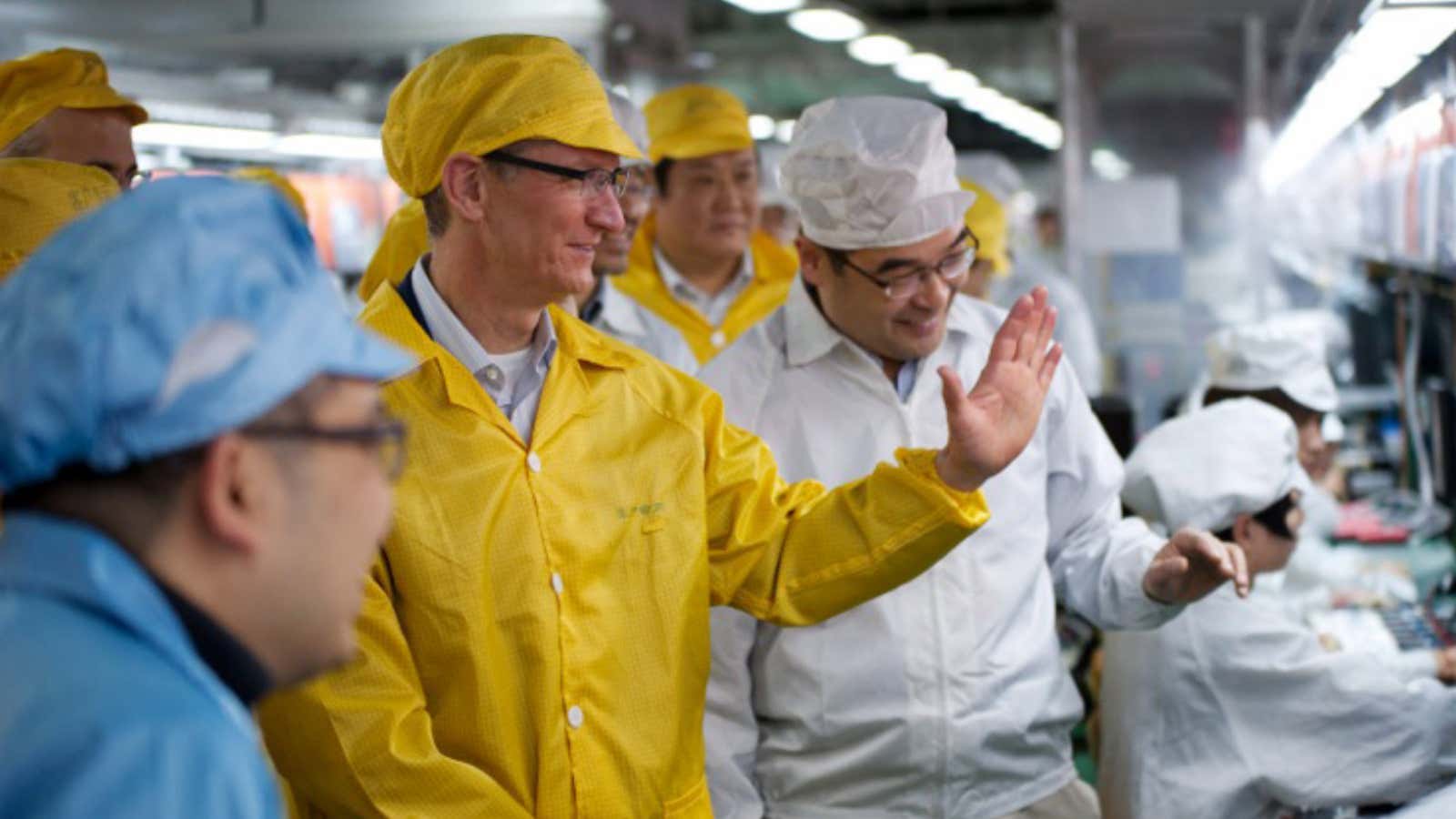Last week, Congress quietly passed a bill that will make it much more difficult for the US government to buy computer equipment from Chinese companies, amid a spate of cyberattacks linked to Beijing. But the unintended consequences could ensnare Apple’s iPhone and other devices sold by US firms that are assembled in China.
A continuing budget resolution that is awaiting President Obama’s signature bans several federal agencies, including NASA and the Justice and Commerce Departments, from purchasing any “information technology system” that was “produced, manufactured or assembled” by entities “owned, directed, or subsidized by the People’s Republic of China,” unless the agency’s chief and the FBI determine whether there is a cybersecurity threat and conclude that the purchase is in the US national interest. The clause was first spotted by Stewart A. Baker, a lawyer and former Homeland Security official, who writes the Skating on Stilts blog.
Congress has long worried that buying equipment from Chinese technology companies like Huawei could lead to more hacking of US computer systems—especially since a growing body of evidence implicates the Chinese government in widespread cyberattacks on western governments and corporations. (The suspicious death of a American engineer in Singapore who had business links to Huawei has also caused alarm on Capitol Hill.) Update: The US is also making government oversight of network equipment purchases a condition of its approval of Softbank’s acquisition of Sprint Nextel, so that Huawei gear isn’t used.
But the law doesn’t stop at routers and mainframes: It would also make it more difficult for consumer technology companies like Lenovo to sell laptops to the U.S. government, and could conceivably be applied to countless consumer electronics products assembled in mainland China.
For example, Taiwan-based Foxconn, which has received documented subsidies from the Chinese government, assembles many of Apple products. One of Foxconn’s main iPhone5 factories is in Zhengzhou, capital of the central province of Henan. When Foxconn had trouble finding enough workers to staff the plant (a symptom of China’s worsening affordable labor shortage), the Henan provincial government stepped in with $15.8 million in subsidies to incentivize new workers.
Baker predicted that the law may “bring some surprises for American companies selling commercial IT gear to the government. It’s not clear that they even know which of their suppliers and assemblers are directed or subsidized by the Chinese government.”
Reuters interviewed an anonymous congressional aid who said the legislation was not designed “to hurt American and European companies that have operations in China.” But the aide also noted that law is also “a helpful reminder to look at the supply chain” of American firms. It would be interesting to know if he or she gave that interview on a iPhone purchased by the US government.
